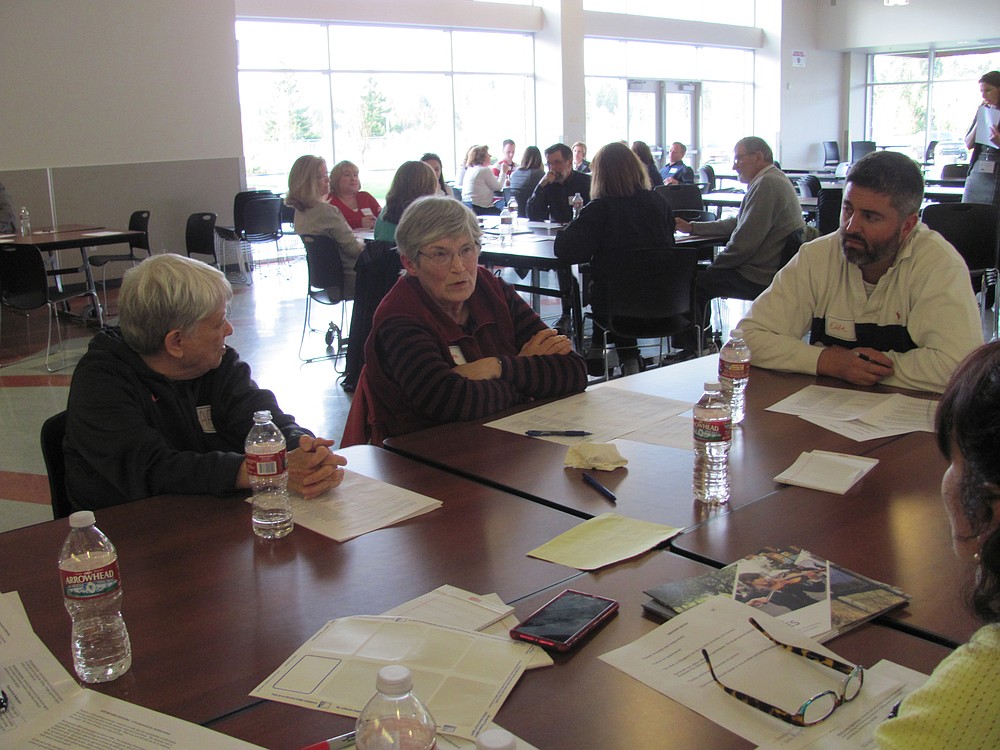A forum about affordable housing attracted more than 30 people to Camas High School.
They included Eddie White, a Camas resident and executive director of the Clark County Family YMCA.
He is a participant in Leadership Clark County, and his team project is focused on barriers to affordable housing.
“People need a safe place to live,” White said. “If people don’t know where they are going to sleep at night or don’t know where their next meal is going to come from, how can we expect them to function at a high level, especially our children?
He said people who sat at the same table that he did during the March 31 forum determined that it will take an engaged community to make change.
“I don’t think there is one silver bullet but a mixture of adjustments that need to be made for us to see progress in affordable housing,” White said.


